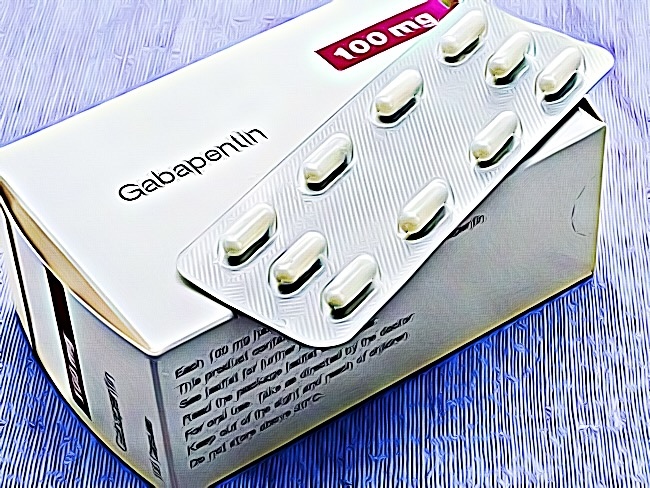When treating seizures and other similar conditions, Gabapentin (Neurontin) rises on top as the go-to choice for prescriptions as experts believe it’s one of the most effective medications for easing convulsive tendencies, as well as migraines. fibromyalgia, and pain.
Gabapentin’s popularity is also due to its low potential for abuse, which means that people who need to regularly take this medication shouldn’t grow dependent on the drug compared to other prescribed labels. Unfortunately, recent research shows that despite the low rate for addiction, the number of people abusing Gabapentin is skyrocketing higher than ever.
Gabapentin is a wonderful medication that doesn’t cause serious withdrawal symptoms, but it is still possible to become dependent on this drug. In rare cases, withdrawal symptoms occur in patients who have been taking this drug for an extended period of time (typically the recommended three months or longer).
The Gabapentin withdrawal syndrome presents itself in the same manner as any other prescription drug withdrawal, but it is more difficult to deal with because of the small percentage of people who experience it.
What are Gabapentin’s Withdrawal Symptoms?
There are some people who are more likely to become dependent on the drug; however, anyone can experience withdrawal when they stop taking this drug.
The symptoms often develop after the patient has taken this drug for an extended period of time, or if they’re taking a higher dosage than the recommended amount. If this occurs, it’s best to consult with your doctor before continuing to take the drug.
The most common withdrawal symptoms are:
- Anxiety;
- Agitation;
- Insomnia;
- Fatigue;
- Restlessness;
- Irritability;
- Dizziness;
- Headache;
- Sensitivity to light;
- Sweating;
- Irregular heartbeat;
- Nausea;
- Pain;
Most of the time, these symptoms occur within the first few days of taking your last dose of the drug. The intensity will resolve itself within a few days to a week or so after the patient has completely stopped taking the drug.
What are the Factors that Impact Withdrawal?
The length of time the patient took the drug, as well as their dosage size and the concentration of the dosage, will all impact how strong the withdrawal symptoms are and how long it’ll last.
If you have been taking the drug for an extended period of time and are taking a higher dosage, then you are more likely to experience severe withdrawal symptoms.
If you’re taking Gabapentin, then it’s important that you don’t just stop taking the drug without first talking to your doctor.
Dealing with Gabapentin’s Withdrawal Symptoms: The Importance of Tapering Off the Drug with Strict Medical Guidance
If you’ve been taking this drug for a long period of time, it’s important to taper off the dosage of the drug to avoid the symptoms of withdrawal.
If you haven’t been taking the drug for an extended period of time and don’t have a certain condition that would put you at risk for withdrawal symptoms, then taking a few days off the drug shouldn’t result in any significant withdrawal symptoms.
It’s important to seek medical help. This is especially true if you’ve been taking this medication for an extended period of time, or have experienced an overdose. Because of the potential risk of withdrawal, it’s best to consult with a medical professional and taper off the dosage in a professional environment.
Even if you don’t experience any withdrawal symptoms, it’s still a good idea to talk to your doctor and taper off the dosage of the drug over the course of a few days to avoid any issues in the future.
What are the Effects of Gabapentin?
The main use of this drug is for the treatment of epilepsy, postherpetic neuralgia, and the treatment of pain from shingles. It’s also used to treat multiple sclerosis and symptoms of fibromyalgia.
This drug is not for everyone. It’s typically prescribed for people who have a higher than normal risk for seizure disorders, other seizure-related disorders, or conditions that put them at risk for developing nerve problems.
Gabapentin works to prevent or control seizures by influencing the action of certain chemicals in the brain. This drug works by controlling the flow of the chemical GABA. This chemical is responsible for the regulation of nerve signaling. When there is an imbalance within GABA, it’s possible for the individual to experience seizures, restless legs syndrome, or other similar issues.
Common side effects of Gabapentin include:
- Dizziness;
- Sleepiness;
- High water retention (leading to swelling of the arms, hands, legs, and feet);
- Difficulty walking;
Both children and adults who take Gabapentin as prescribed by the doctor may experience the side effects mentioned above as it occurs in up to ten percent of patients. However, there are also other adverse side effects that may persist, such as the following:
- Back or chest pain;
- Constipation;
- Diarrhea;
- Vomiting;
- Upset stomach;
- Increased appetite and weight gain;
- Blurry vision;
- Bruising;
- Changes in mood;
- Chills;
- Cough;
- fatigue;
- Fever;
- Flu-like or cold-like symptoms;
- Hoarseness and dry mouth;
- Memory loss;
- Mouth ulcers;
- Shortness of breath;
- A sore throat and swollen glands;
- Trembling;
- Urinary problems;
- Weakness;
- Uncontrollable eye-rolling;
If the side effects are ongoing and worsen over time, then it’s important to consult with your doctor as he or she may prescribe you a different medication.
What Safety Concerns Should You Know When Taking Gabapentin?
Some of the possible and rare side effects that may occur with this drug is a mild skin rash. If it gets worse, or if you develop a fever, then it’s important to contact either your doctor or emergency help immediately as it’s likely that you may be allergic to the drug.
If you’re taking this medication and experience blurred vision, involuntary eye movements, ringing in the ears, muscle twitches, slurred speech, confusion, or seizures, contact your doctor immediately as these are the side effects that are the most likely to be caused by an overdose on the medication.
There is also a risk of developing liver and kidney abnormalities, wherein these conditions are triggered by a reaction to the drug and are usually a result of a rare adverse reaction. As a precaution, doctors will monitor patients who are taking this drug and make sure they’re safe by performing a series of lab tests.
If you also notice extreme mood changes, wherein suicidal thoughts invade the mind, it’s important to get help immediately. If you’ve been taking this drug for a longer period of time, you may notice that you’ve experienced a change in your mood and memory.
In rare cases, you could develop an addiction to the drug, which means that it’s highly likely that you’ll experience withdrawal symptoms should you stop taking the medication.
This medication can’t be used in individuals who are pregnant, breastfeeding, or in the first twelve to twenty-four hours after delivering a baby.

Can You Overdose on Gabapentin?
An overdose on Gabapentin (which happens if you take up to 49 grams of the drug) can be serious and cause severe side effects. In severe cases, death can occur. In most cases, the effects of an overdose will be the same severity as a regular overdose, yet the symptoms may begin in a more immediate fashion.
If you suspect that you have taken an overdose, do not hesitate to contact emergency help. The signs and symptoms of overdosing on Gabapentin are:
- Blurred vision;
- Confusion;
- Dizziness;
- Abnormal heart rhythm;
- Nausea and vomiting;
- Blurred vision;
- Seizures;
- Fainting;
- Signs of a seizure;
- Coma;
- Loss of consciousness.
You should take Gabapentin only as prescribed by your doctor.
Conclusion
Gabapentin is a serious drug and can be very helpful in treating seizures, nerve pain, and other serious pain conditions. It’s important that you understand all of the risks before starting to take this medication.
If you do decide to start taking this medication, it’s important to understand how it can impact your life. You should consult with your doctor to determine the exact dosage that’s right for you. Seek medical attention immediately if you experience any of the side effects listed above.
For the most part, Gabapentin is a beneficial drug, which can provide a great deal of relief for so many people. It’s very helpful for individuals who suffer from conditions such as seizures and nerve pain; however, this drug can also pose a great risk to those who take it.
It’s important to know the risks of taking this drug, as well as the withdrawal symptoms that might occur down the road if you stop taking it.
Sources:
















